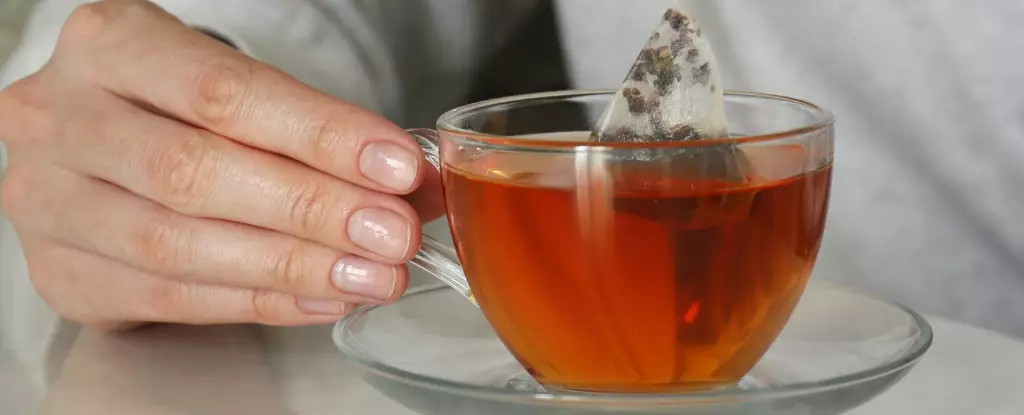In our modern world, microplastics have become an unavoidable component of our environment. From the depths of the ocean to the air we breathe, these tiny plastic particles are an alarming testament to human consumption patterns. Recent studies have illuminated an unexpected source of these contaminants: tea bags. A groundbreaking investigation conducted by researchers from the Autonomous University of Barcelona has revealed that tea bags can release tremendous amounts of microplastics into our beverages. This disturbing finding not only underscores the prevalence of microplastics in our daily lives but also raises significant concerns regarding their health implications.
The study in question meticulously analyzed various commercially available tea bags, assessing the number of micro- and nanoplastic (MNPL) particles released into the water. The results were staggering, with polypropylene tea bags releasing approximately 1.2 billion particles per milliliter, dwarfing the escapes from cellulose and nylon-6 bags. Such numbers may initially appear shocking; however, they align with existing research indicating that heat plays a pivotal role in degrading plastics, resulting in the proliferation of microplastics in food and beverage products. The use of advanced laser techniques in this study allowed researchers to delve into the properties of these particles, creating an alarming picture of their potential impact on health.
Further complicating the matter, the study explored how these MNPLs interact with human intestinal cells. The findings suggest that these particles are not merely transient guests in our digestive systems; they are capable of penetrating deeper into cells, even reaching the nucleus. This revelation is particularly concerning, as the polymer structure of the MNPLs affects how they interact with biological materials. Varied responses in terms of toxicity, immune reaction, and potential long-term health impacts—such as genotoxicity—are indeed alarming. It posits that every tea bag steeped in boiling water could be a gateway for harmful substances to enter the human body.
The ramifications of plastic contamination are not limited to human health; ecosystem integrity is equally at stake. As microplastics permeate natural habitats, they disrupt food chains and can affect wildlife. Studies linking the prevalence of plastics in the gut to diseases such as inflammatory bowel disease highlight the far-reaching consequences. Ingested by marine life, these microplastics accumulate, magnifying the issue throughout the aquatic food web and ultimately impacting human consumers.
In light of these pressing concerns, the research team emphasizes the need for stricter regulations surrounding plastic usage in food packaging. While these legislative efforts may seem cumbersome, they are essential in safeguarding public health. The increasing presence of MNPLs cannot be a mere footnote in the ongoing dialogue around plastic pollution; it necessitates urgent and collective action. From policymakers to consumers, everyone has a role in reducing plastic waste and holding manufacturers accountable for their packaging choices.
The discovery regarding microplastics in tea bags serves as a sobering reminder of the consequences of our choices. As our dependency on plastic continues unabated, the battle against plastic pollution grows ever more critical. By embracing more sustainable practices—such as opting for loose-leaf tea or biodegradable packaging—we can mitigate the risk posed by microplastics to our health and our planet. Scientific research must keep pace with our consumption patterns, informing both policy decisions and consumer choices. The hidden hazards of seemingly innocuous products like tea bags demand our attention and action before it’s too late. The message is clear: a holistic approach to managing plastic use is vital to ensure the safety and well-being of future generations.


Leave a Reply